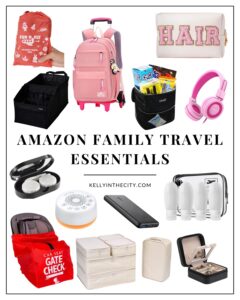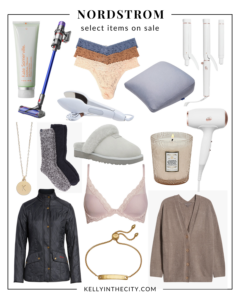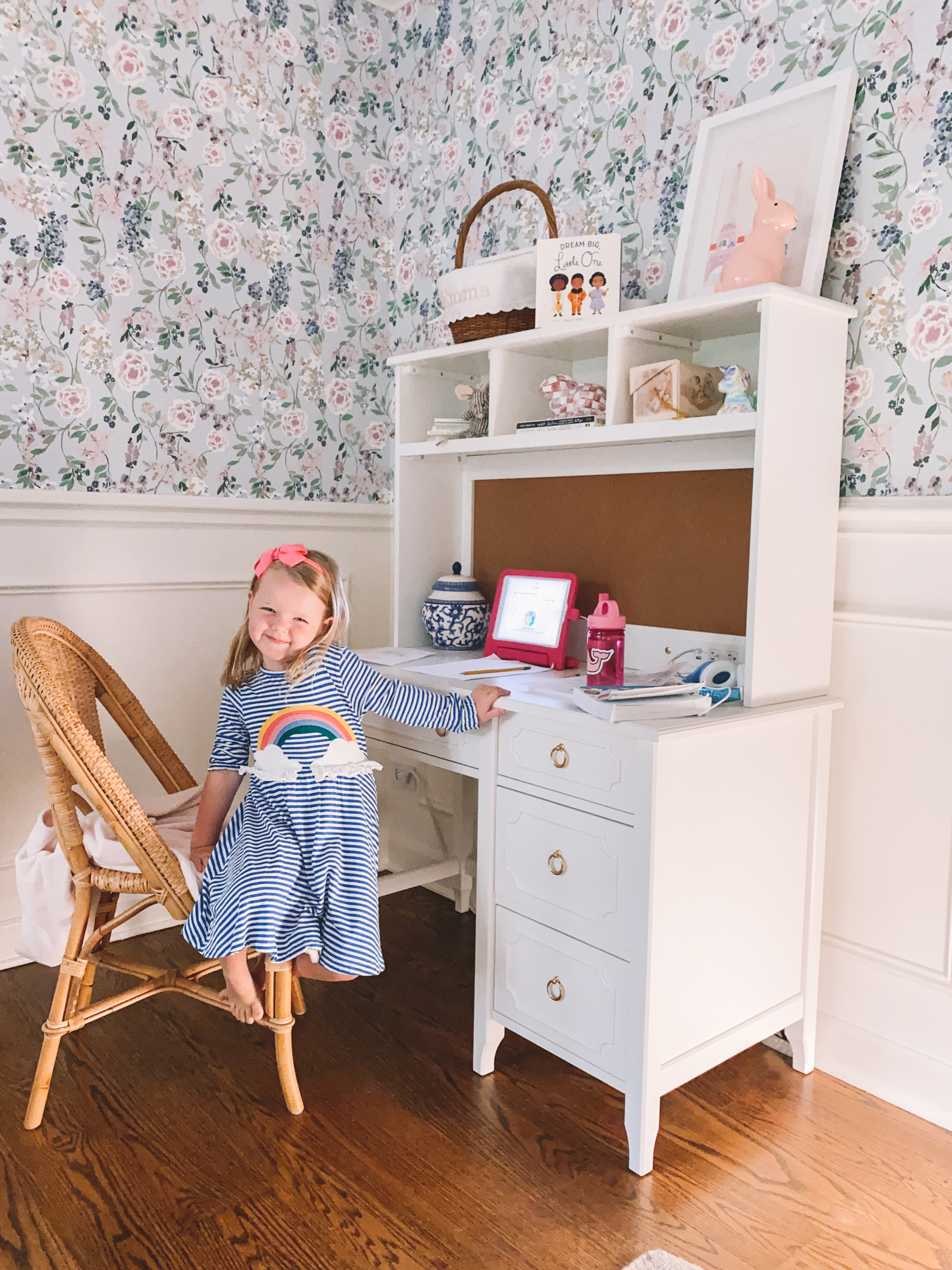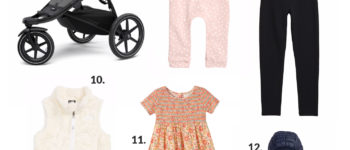Emma’s Room Details / Rainbow Dress
Mr. Mitch here!
Math is important. If you look around, it’s clear that those who have a fundamental mathematical understanding typically have a leg up on those who don’t. I’d be hard-pressed to name a life path that doesn’t require some math in some capacity! So a goal of mine is to work with my daughters on math every day.
I was a math teacher for 10 years, and I’ve seen first-hand the type of stress that math can cause kids and adults alike. “Math anxiety” is a real problem. I actually experienced it myself growing up! A lot of people believe that math skills are a genetic gift, passed down from generation to generation and bestowed upon only the lucky few. Being “not good at math” is used as an excuse to throw up one’s hands, plug one’s ears, and run away in terror. The truth is that understanding math, just like any other skill, is achievable for nearly anyone willing to put in the effort. It just takes some work!
The goal
The reason I’m working with my daughters on math every day isn’t so that they become super geniuses. It’s so that they become comfortable with math from an early age. My hope is that by giving them a fundamental understanding of the subject, they’ll grow a confidence and curiosity for math that will carry them through their more formal education. More specifically, I’d like to see the girls master the math skills necessary for their grade before the school year begins.
To achieve this, I’ve been working with Emma on math activities nearly every day since she was three. (Lucy is only two years old and just starting to talk, so I’m somewhat limited there. But we practice counting, sorting, sizes and shapes!) Emma’s daily activity tackles a specific math skill, has a clear goal in mind, and ends when she shows mastery of that skill. Emma understands what’s expected of her, and most of the activities take between five and 10 minutes.
Recommended materials
Luckily, there are incredible materials available for just this purpose, and most of them are free. Below I’ll share my two favorite math curricula for kids from Pre-k to 8th grade.
Note: I initially struggled with the decision of whether to use physical books or their digital counterparts. I personally, prefer digital learning environments to physical ones—though I wasn’t sure of the right answer for someone as young as Emma. So far, she does prefer working on her iPad as she gets instant feedback and is able to self correct, but I do reach for the textbook whenever we encounter a tough topic that we need to explore further.
I investigated dozens of math curricula in my decade of teaching, and found Go Math by Houghton Mifflin Harcourt to be the best by a long shot. Go Math approaches each math standard from an accessible, scaffolded and approachable perspective. Each topic has multiple differentiated activities and has simple remediation techniques available when necessary. Each skill naturally builds towards higher-order skills, too, and the authors made the effort to connect abstract math topics to the real world as much as possible. Simply put, the Go Math curriculum gives any teacher (OR PARENT!) the skills necessary to succeed on the first day of class.
Even better, Go Math has a companion app that makes the full curriculum available to students on tablets. The app reads each question aloud which is great as Emma is still learning to read. The app also gives Emma the autonomy to tackle lessons and correct mistakes on her own which is something she’s not able to do with the textbook at this point. She is truly engaged in these learning activities, and it’s been wonderfully surprising how independently she is able to work.
Go Math has both textbooks and workbooks on Amazon, and apps for each grade on the App Store. (And no, parents don’t need backgrounds in teaching in order to do it with kids!)
Kahn Academy is becoming one of the greatest learning resources in the world so it’s no surprise they’ve developed the best learning app I’ve found for young children. Khan Academy Kids is Emma’s favorite learning tool and I can’t recommend it enough. It’s totally free to use and incredibly well-designed, and it has learning activities on a wide range of subjects beyond math.
KAK math instruction is fun and engaging, and it builds on all the math standards I expect from a good curriculum. The app guides students through structured learning activities and games with fun characters and helpful hints to keep them engaged. Khan Academy Kids is so kid-friendly that I can set Emma on a task and have her handle it entirely on her own. I’ll even find her doing KAK activities when I’m not around. She’s so independent that I wish Khan Academy would send me summaries of all the things she’s learned so I could talk to her about it. It’s awesome!
Results thus far
Emma and I have covered all of pre-k math (writing numbers, counting, comparing and grouping numbers), all of kindergarten math (using ten to understand double digit numbers, basic operations, comparing measured data) and we’re working on first grade skills (double digit addition and subtraction, simple equations, place value, simple data interpretation).
I should note here that Emma was not born with great math skills. When we started with this, she struggled greatly to write numbers and identify quantities. Now, though, she is confidently employing simple techniques to both add and subtract double digit numbers. She seems to enjoy the challenge! (Though she does get tired and frustrated with the exercises at times, as most kids do.)
And personally, I’m truly enjoying flexing my math teaching muscles again. ;) My classrooms always had over 30 kids in them, and I rarely got to stick with a student and a topic for as long as I do with Emma. Explaining basic math concepts to a beginner can be tough, but watching her skills and confidence grow has been incredibly exciting.
Next steps
Emma and Lucy are still super young and I’m sure this plan will change as they grow. But I’m hoping that our work together—in whatever form it is—will give them both the confidence they need to succeed in school and their careers, and help them realize that math isn’t scary and inaccessible; it’s fun and enjoyable. :)
Let me know if you have any questions or suggestions!
Mitch. Out!















